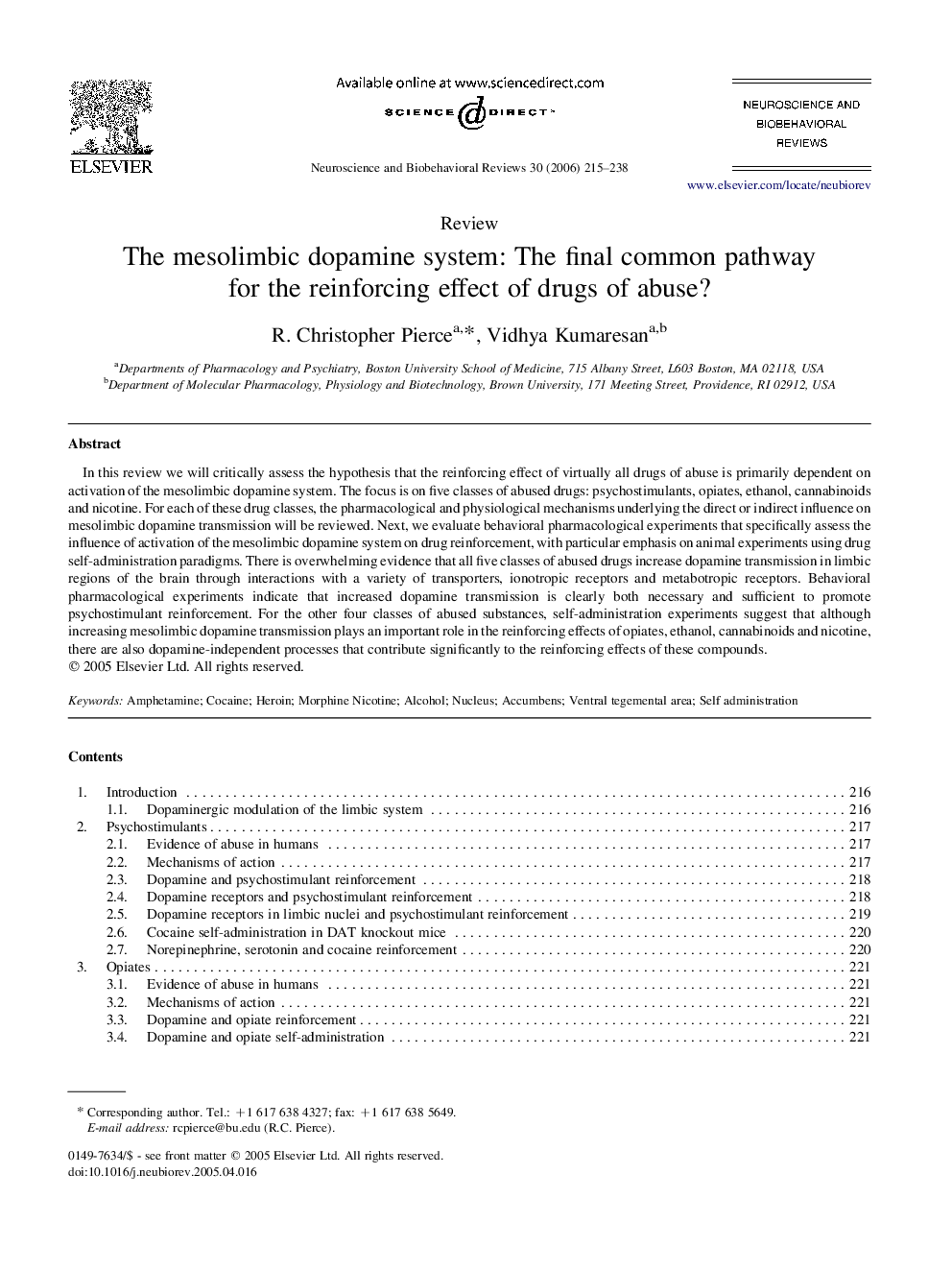| Article ID | Journal | Published Year | Pages | File Type |
|---|---|---|---|---|
| 937973 | Neuroscience & Biobehavioral Reviews | 2006 | 24 Pages |
In this review we will critically assess the hypothesis that the reinforcing effect of virtually all drugs of abuse is primarily dependent on activation of the mesolimbic dopamine system. The focus is on five classes of abused drugs: psychostimulants, opiates, ethanol, cannabinoids and nicotine. For each of these drug classes, the pharmacological and physiological mechanisms underlying the direct or indirect influence on mesolimbic dopamine transmission will be reviewed. Next, we evaluate behavioral pharmacological experiments that specifically assess the influence of activation of the mesolimbic dopamine system on drug reinforcement, with particular emphasis on animal experiments using drug self-administration paradigms. There is overwhelming evidence that all five classes of abused drugs increase dopamine transmission in limbic regions of the brain through interactions with a variety of transporters, ionotropic receptors and metabotropic receptors. Behavioral pharmacological experiments indicate that increased dopamine transmission is clearly both necessary and sufficient to promote psychostimulant reinforcement. For the other four classes of abused substances, self-administration experiments suggest that although increasing mesolimbic dopamine transmission plays an important role in the reinforcing effects of opiates, ethanol, cannabinoids and nicotine, there are also dopamine-independent processes that contribute significantly to the reinforcing effects of these compounds.
